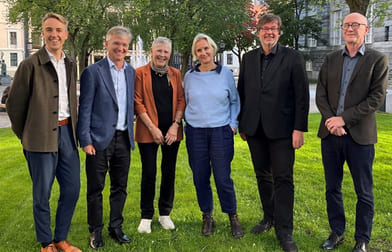Achieving European Union’s 2050 carbon neutrality goal requires a profound and accelerated transformation of energy systems. This transition involves not only a reconfiguration of the energy mix, but also far-reaching technological consequences stemming from the choices made, as well as the crucial issue of social acceptability.
This report examines the deep structural shifts in national energy systems that are underway. It also looks into the new technological and industrial challenges related to this transition, and considers public acceptance and the capacity of societies to manage the social costs and benefits of the energy transition. It results from the joint effort of members of the European Parliamentary Technology Assessment (EPTA) network. The network consists of 14 full member and 11 associate member organisations and assists parliaments in exploring interactions between science, technology and society for policy.
EPTA report 2025: Transforming the energy mix
20 EPTA members have contributed to this year’s report. Each member provides unique perspectives and experiences from their countries and regions regarding three main topics:
- Reconfiguring the energy mix for climate neutrality;
- Technological consequences of the political choices;
- Social acceptability and political sustainability of the energy transition.
The summary for policymakers synthesises recurring themes, differences, and similarities in member countries’ policy approaches to reconfiguring the energy mix.
The French Parliamentary Office for Scientific and Technological Assessment (Office parlementaire d’évaluation des choix scientifiques et technologiques – OPECST) holds the EPTA presidency for 2025 and has initiated and coordinated this analysis.
The Norwegian Board of Technology has written the Norwegian contribution.



